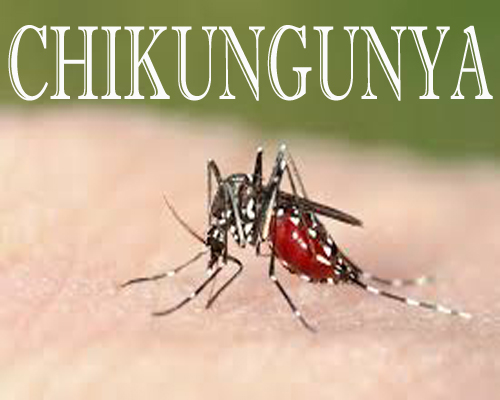- Home
- Medical news & Guidelines
- Anesthesiology
- Cardiology and CTVS
- Critical Care
- Dentistry
- Dermatology
- Diabetes and Endocrinology
- ENT
- Gastroenterology
- Medicine
- Nephrology
- Neurology
- Obstretics-Gynaecology
- Oncology
- Ophthalmology
- Orthopaedics
- Pediatrics-Neonatology
- Psychiatry
- Pulmonology
- Radiology
- Surgery
- Urology
- Laboratory Medicine
- Diet
- Nursing
- Paramedical
- Physiotherapy
- Health news
- Fact Check
- Bone Health Fact Check
- Brain Health Fact Check
- Cancer Related Fact Check
- Child Care Fact Check
- Dental and oral health fact check
- Diabetes and metabolic health fact check
- Diet and Nutrition Fact Check
- Eye and ENT Care Fact Check
- Fitness fact check
- Gut health fact check
- Heart health fact check
- Kidney health fact check
- Medical education fact check
- Men's health fact check
- Respiratory fact check
- Skin and hair care fact check
- Vaccine and Immunization fact check
- Women's health fact check
- AYUSH
- State News
- Andaman and Nicobar Islands
- Andhra Pradesh
- Arunachal Pradesh
- Assam
- Bihar
- Chandigarh
- Chattisgarh
- Dadra and Nagar Haveli
- Daman and Diu
- Delhi
- Goa
- Gujarat
- Haryana
- Himachal Pradesh
- Jammu & Kashmir
- Jharkhand
- Karnataka
- Kerala
- Ladakh
- Lakshadweep
- Madhya Pradesh
- Maharashtra
- Manipur
- Meghalaya
- Mizoram
- Nagaland
- Odisha
- Puducherry
- Punjab
- Rajasthan
- Sikkim
- Tamil Nadu
- Telangana
- Tripura
- Uttar Pradesh
- Uttrakhand
- West Bengal
- Medical Education
- Industry
New affordable diagnostic kit for chikungunya developed

In order to make the detection of the mosquito-borne illness chikungunya more affordable and simple, a new diagnostic test kit has been developed internationally. The kit has been developed by the researchers at the University of Texas Medical Branch at Galveston in partnership with a commercial lab.
As a part of the process to quickly detect the deadly chikungunya, which can cause severe, incapacitating and often chronic joint pain to the patient; the researchers used another mosquito-borne virus named Eilat virus, which is related to chikungunya and other mosquito-borne viruses.
The team found that the virus replicates only in mosquitoes, which makes it harmless to humans and other vertebrates.
"We started thinking that maybe there is something practical we can do with this unusual virus," said one of the researchers, Scott Weaver.
Researchers found that they could replace the structural proteins of the Eilat virus with those of chikungunya and create a virus that looks like it to the immune system but will not replicate in humans, Jesse Erasmus from UTMB pointed out.
Most diagnostics available today use chikungunya virus that has been in-activated. That requires work in higher-level containment labs so these tests are more expensive to make and their sensitivity can be compromised by the inactivation, Erasmus explained.
Working with the private commercial lab InBios International, the UTMB scientists used the Eilat virus to create a safe and simple-to-use diagnostic test.
Healthcare professionals are able to take the serum of those suspected of being infected with chikungunya and using the new diagnostic test kit, have a result in less than two hours, Weaver said.
Researchers described their discovery in a paper published in the journal PLOS Neglected Tropical Diseases.
As a part of the process to quickly detect the deadly chikungunya, which can cause severe, incapacitating and often chronic joint pain to the patient; the researchers used another mosquito-borne virus named Eilat virus, which is related to chikungunya and other mosquito-borne viruses.
The team found that the virus replicates only in mosquitoes, which makes it harmless to humans and other vertebrates.
"We started thinking that maybe there is something practical we can do with this unusual virus," said one of the researchers, Scott Weaver.
Researchers found that they could replace the structural proteins of the Eilat virus with those of chikungunya and create a virus that looks like it to the immune system but will not replicate in humans, Jesse Erasmus from UTMB pointed out.
Most diagnostics available today use chikungunya virus that has been in-activated. That requires work in higher-level containment labs so these tests are more expensive to make and their sensitivity can be compromised by the inactivation, Erasmus explained.
Working with the private commercial lab InBios International, the UTMB scientists used the Eilat virus to create a safe and simple-to-use diagnostic test.
Healthcare professionals are able to take the serum of those suspected of being infected with chikungunya and using the new diagnostic test kit, have a result in less than two hours, Weaver said.
Researchers described their discovery in a paper published in the journal PLOS Neglected Tropical Diseases.
Meghna A Singhania is the founder and Editor-in-Chief at Medical Dialogues. An Economics graduate from Delhi University and a post graduate from London School of Economics and Political Science, her key research interest lies in health economics, and policy making in health and medical sector in the country. She is a member of the Association of Healthcare Journalists. She can be contacted at meghna@medicaldialogues.in. Contact no. 011-43720751
Next Story


